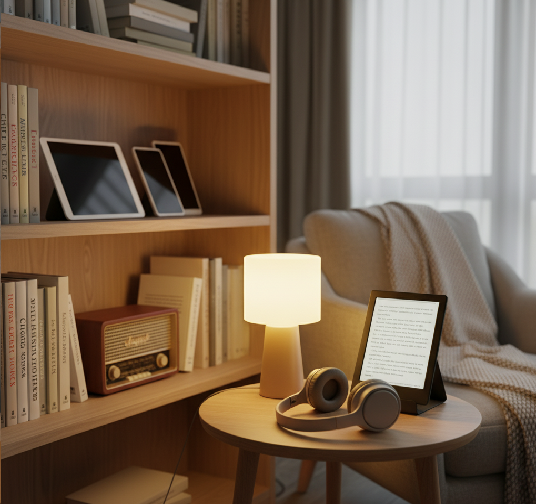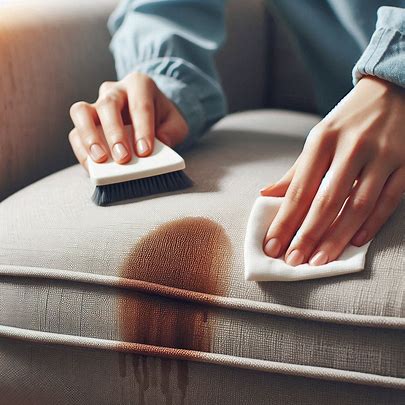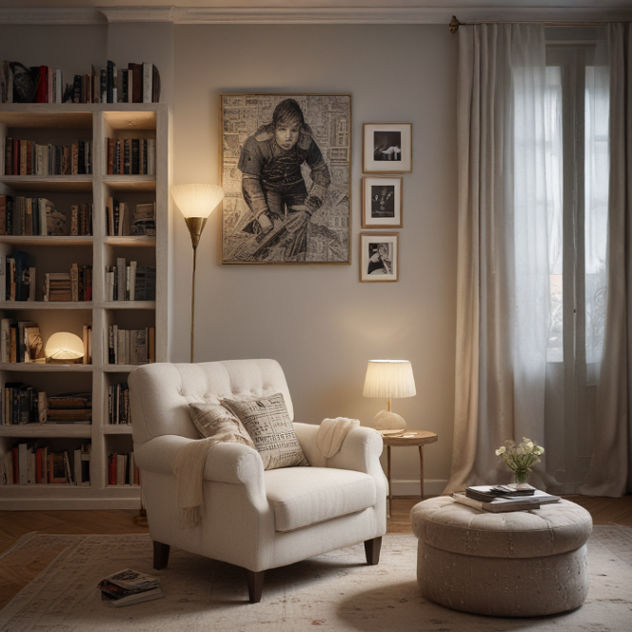
Cushions don’t just cradle bodies—they cradle moments. A tear-stained pillow. A chocolate smudge from a child’s excited hands. The faint scent of coffee spilled during a late-night read. These details, invisible to most, are written into the fabric of our lives—stitched tightly into the seams of our sofas and chairs.
Furniture isn’t just furniture. Over time, it becomes an archive of ordinary magic. A quiet listener during family arguments, a stage for toddler acrobatics, a haven during flu season, or the soft throne for Sunday afternoon naps. These objects might be silent, but they’ve seen everything. And when it starts to wear, a little love—like Sunshine Coast Upholstery Cleaning—can breathe life into their stories again.
The Fabric of Memory
Imagine if your sofa could speak. It wouldn’t just tell you who sat there last. It would describe decades of laughter, Netflix binges, pets curled into warm balls, and quiet reading sessions as the world spun outside the window. Upholstery becomes a kind of living diary—a timeline wrapped in fabric and foam.
The indents left by tired bodies. The fading of fabric where sunlight kissed it every morning. Each cushion holds the weight of stories told and untold. Much like pages in a beloved book, wear and tear aren’t just signs of use; they are symbols of life lived deeply and messily.
Childhood Spilled Here
Some of the loudest memories are the smallest ones. Crumbs from birthday cakes, fingerprints from arts-and-crafts afternoons, and the occasional juice spill during a living room campout. Kids unknowingly write their own stories across your furniture—chapters filled with innocence, mess, and joy.
Those spots and stains, while frustrating in the moment, become part of the furniture’s charm. Over time, they blend into the memoryscape of your home. And when it’s time to clean, it’s not about erasing those moments—it’s about making space for new ones.
Chairs That Keep Secrets
Your favorite armchair might not look like much, but it knows your habits better than anyone. Where your hand naturally rests. Where your feet always land. The quiet sobs it absorbed during heartbreak or the peaceful silence of late-night journaling. The comfort you felt there? That’s not easily replaced.
Even visitors unknowingly add their mark. Conversations over wine, games played during holidays, or stolen naps after a long meal—these create layers of emotional history. And when you refresh that fabric, you’re not wiping memories away. You’re giving your furniture a second wind to collect more.
Why Cleaning Matters
Just like your sofa, your mattress quietly holds a story of sleep, stress, and stillness. Many overlook the literary importance of a clean mattress, but a fresh, sanitized bed carries the same value—restoring both health and the atmosphere of restfulness in your home.
Furniture ages. Just like people. But while a new cushion cover or fluffing can help, a deep clean does more than just lift dirt. It restores dignity. It lets a piece feel cared for again. It turns something tired into something treasured.
Professional upholstery cleaning goes beyond the surface. It removes the built-up residue of years—dust, sweat, and the invisible stuff that dulls not only the color but the spirit of the fabric. More importantly, it brings freshness back to the space itself. A cleaned couch can make a living room feel like spring—even in winter.
Giving New Life to Old Stories
There’s beauty in letting things last. When you clean rather than replace, you respect the journey. Your furniture has been there for your memories. Taking care of it is a way of saying thank you. It’s not just cleaning—it’s story preservation.
Think of it like editing a favorite novel. You keep the plot, the characters, the charm—but you remove the smudges, smooth the pages, and breathe clarity into the lines. Your furniture is still your furniture. It just gets a fresh chapter.
A Living Story Still Being Written
Our homes are not just shelters. They’re storybooks made of bricks and beams. Every spill, crease, or scratch adds a line to the tale. And your upholstered furniture? It’s the prologue, the climax, and sometimes, the soft landing at the end of a hard day.
So next time you glance at your couch, don’t just see a piece of fabric. See a thousand laughs, five dozen naps, three dog scratches, a hundred dreams, and countless quiet moments. Give it the care it deserves. Because its story is yours—and it’s far from over.
Conclusion
Old furniture doesn’t have to mean forgotten memories. With attention, cleaning, and the occasional renewal, your sofa can keep telling stories—fresh, clean, and full of life. After all, what better narrator is there than the place that’s held you through it all?
 These tools make it possible to guarantee that literary materials are discoverable and some physical deterioration is prevented.
These tools make it possible to guarantee that literary materials are discoverable and some physical deterioration is prevented.


 The mundane has long provided literature with material for inspiration. There is often greater emotional weight in commonplace things than in monumental structures. Both the characters and the audience are transported to nostalgic memories by these things, which serve as carriers of memory. They frequently take on symbolic meaning in works of literature as subjects of metamorphosis, loss, or identity crisis.
The mundane has long provided literature with material for inspiration. There is often greater emotional weight in commonplace things than in monumental structures. Both the characters and the audience are transported to nostalgic memories by these things, which serve as carriers of memory. They frequently take on symbolic meaning in works of literature as subjects of metamorphosis, loss, or identity crisis. In older Belgian tales, particularly from authors like Georges Eekhoud or Marie Gevers, the fireplace wasn’t just practical—it was deeply symbolic. It stood for unity, love, and safety. Characters often gathered around it after dinner, exchanging stories or finding solace in its flickering light. The fire became a literary tool, representing everything from tradition and belonging to loss and nostalgia.
In older Belgian tales, particularly from authors like Georges Eekhoud or Marie Gevers, the fireplace wasn’t just practical—it was deeply symbolic. It stood for unity, love, and safety. Characters often gathered around it after dinner, exchanging stories or finding solace in its flickering light. The fire became a literary tool, representing everything from tradition and belonging to loss and nostalgia. Assess the book’s state before beginning repair. Look for faded covers, loose bindings, or ripped pages.
Assess the book’s state before beginning repair. Look for faded covers, loose bindings, or ripped pages.

 Objects, persons, circumstances, and colors can have symbolic meaning. One story may associate a rose with love, while another with fleeting beauty. Authors use symbols to subtly convey complicated thoughts and feelings.
Objects, persons, circumstances, and colors can have symbolic meaning. One story may associate a rose with love, while another with fleeting beauty. Authors use symbols to subtly convey complicated thoughts and feelings. “Lost Generation” and Literary Success Hemingway joined the “Lost Generation” of American expats in Paris in the 1920s. His writing flourished during this time. Novels like The Sun Also Rises (1926) and A Farewell to Arms (1929) reflected wartime disenchantment and moral ambivalence. Hemingway’s concise, straightforward words and vivid imagery moved readers.
“Lost Generation” and Literary Success Hemingway joined the “Lost Generation” of American expats in Paris in the 1920s. His writing flourished during this time. Novels like The Sun Also Rises (1926) and A Farewell to Arms (1929) reflected wartime disenchantment and moral ambivalence. Hemingway’s concise, straightforward words and vivid imagery moved readers. The Great Gatsby by F. Scott Fitzgerald is more than just a story about love and loss; it’s a beautiful fabric with colors that stand for things. Fitzgerald is a master at using color to show what the characters want, what they dream about, and how empty their fancy lives are.
The Great Gatsby by F. Scott Fitzgerald is more than just a story about love and loss; it’s a beautiful fabric with colors that stand for things. Fitzgerald is a master at using color to show what the characters want, what they dream about, and how empty their fancy lives are.





































 When you think of literature and auto repair, they may seem worlds apart. One involves storytelling and imagination, while the other requires tools and technical skills. Yet, both fields share surprising similarities, offering lessons that can enrich both the mind and the hands.
When you think of literature and auto repair, they may seem worlds apart. One involves storytelling and imagination, while the other requires tools and technical skills. Yet, both fields share surprising similarities, offering lessons that can enrich both the mind and the hands.


 Traveling to Africa can be a profound experience, not just for the breathtaking landscapes and diverse wildlife but for the rich cultural and literary heritage woven through the continent’s past and present. Tanzania, with its famed Serengeti and Mount Kilimanjaro, offers an opportunity to explore this heritage through both literature and safari tours and be able to say hi in swahili.
Traveling to Africa can be a profound experience, not just for the breathtaking landscapes and diverse wildlife but for the rich cultural and literary heritage woven through the continent’s past and present. Tanzania, with its famed Serengeti and Mount Kilimanjaro, offers an opportunity to explore this heritage through both literature and safari tours and be able to say hi in swahili.